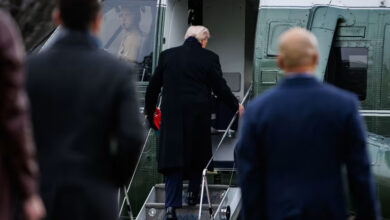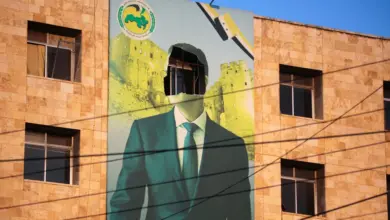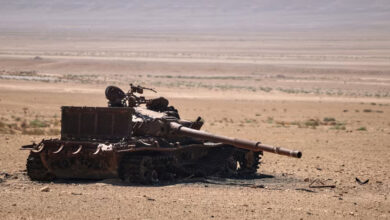
Two car bombs killed at least 34 people in a district of Damascus loyal to President Bashar al-Assad on Wednesday in the deadliest attack on the Syrian capital in months.
The explosions struck the eastern neighborhood of Jaramana, home to many of Syria's Druze minority as well as Christians who have fled violence elsewhere, ripping through shops and bringing debris crashing down on cars.
Once a bastion of security in Assad's 20-month campaign to crush an uprising against his rule, Damascus has been hit with increasing regularity as the rebels grow bolder.
State media said a bomb also detonated in the southern town of Bosra al-Sham, near Deraa, where the revolt began with peaceful street protests in March 2011. It also said eight "terrorists" were killed near Damascus while they tried to booby-trap a car with a bomb.
Authorities severely limit independent media in Syria and it was not immediately possible to verify reports. The government said 34 people were killed in Damascus but did not give a casualty count for the Bosra al-Sham bombing.
The attacks followed two weeks of military gains by rebels who have stormed and taken army bases across Syria, exposing Assad's loss of control in northern and eastern regions despite the devastating air power which he has used to bombard opposition strongholds.
A resident of Jaramana said that rebels had been repeatedly forbidden by local Druze elders to operate in the district, which borders the capital's center where government offices are located.
"Tension have risen between Druze elders and rebels and now there are three or four small explosions a week," she told Reuters on condition of anonymity.
Underlining the growing military muscle of the rebels, bolstered by weapons captured during raids on army facilities as well as supplies from abroad, fighters shot down a war plane in northern Syria on Wednesday using an anti-aircraft missile, the Syrian Observatory for Human Rights said.
Opposition groups subsequently posted a video clip on the Internet that showed a man in a green jumpsuit being carried through fields. He was bleeding heavily from his head and appeared unconscious. "This is the pilot that attacked the houses of civilians," said a voice off camera.
Another video showed doctors treating the limp body of apparently the same pilot, who activists said ejected from his MiG 23 fighter jet before it crashed near Darat Ezza, about 30 km (20 miles) from Aleppo.
The bloodshed came as Syria's new opposition coalition held its first full meeting on Wednesday to discuss forming a transitional government crucial to win effective Arab and Western support for the revolt against Assad.
"The objective is to name the prime minister for a transitional government, or at least have a list of candidates," said Suhair al-Atassi, one of the coalition's two vice-presidents.
The two-day meeting in Cairo will also select committees to manage aid and communications, a process that is becoming a power struggle between the Muslim Brotherhood and secular members.
Rivalries have also intensified between the opposition in exile and rebels on the ground in Syria, where the death toll has reached 40,000, including soldiers, civilians and rebels.
‘Terrorist’ bombs
The Syrian state news agency, SANA, described Wednesday's blasts as "terrorist bombings," a label it reserves for attacks by mainly Sunni Muslim fighters battling to overthrow Assad, a member of Syria's Alawi minority linked to Shia Islam.
Two smaller bombs also exploded in Jaramana at about the same time as the car bombs, around 7 am (0500 GMT). In total at least 47 people were killed, the Syrian Observatory for Human Rights said, giving a higher toll than the government. Eighty three people were seriously wounded, the British-based Observatory said.
"Who benefits from this? Tell me who benefits from this? America, Israel, Qatar?" a man at the bomb site said to Syrian television, which broadcast footage of firefighters hosing down the blackened hulks of two vehicles and several cars crushed by debris from neighboring buildings.
Pools of blood could be seen on the road.
Most foreign powers have condemned Assad. Britain, France and Gulf countries have recognized the umbrella opposition group meeting in Cairo, the Syrian National Coalition, as the sole representative of the Syrian people.
But Assad has been able to rely on his allies, especially regional powerhouse Iran, which is believed to be bank-rolling him and supplying military support despite US and European sanctions. Russia, Syria's main arms supplier, says it has only sent weapons already agreed to in previous deals.
International Syria mediator Lakhdar Brahimi is due to brief the 15-member council on Thursday and the UN General Assembly on Friday. There is diplomatic deadlock between Western powers, who broadly support the opposition and Assad's supporters Russia and China which have blocked Security Council action.




